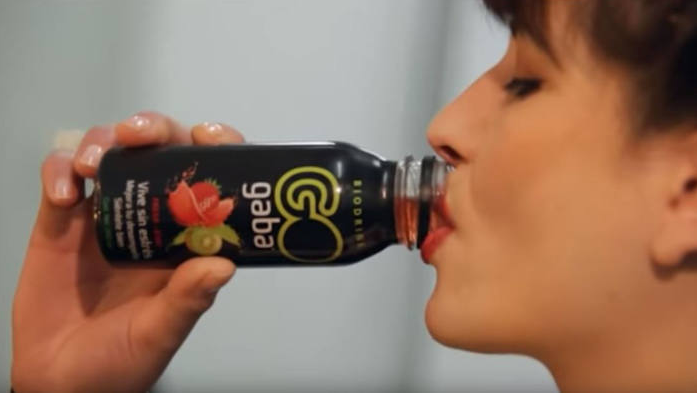A Mexican entrepreneur has filed a criminal complaint against Coca-Cola and is seeking almost $345m in damages from the world’s largest beverage maker following a dispute over a new drink that aims to boost brain performance.
José Antonio del Valle has levelled allegations of corporate fraud and industrial property theft against Coca-Cola at a federal and local level in Mexico.
The Mexico City prosecutor’s office, which is investigating the complaint of corporate fraud, has found that the drinks manufacturer should pay Mr del Valle $344.5m in damages, according to official documents seen by the Financial Times. The local prosecutor is expected to serve subpoenas to Coca-Cola executives in Mexico in the coming weeks before a judge decides whether it can bring charges against the company.
Federal prosecutors are separately investigating whether Coca-Cola committed industrial property theft. Both federal and local prosecutors declined to comment on their investigations.
Coca-Cola is an iconic brand in Mexico, where the former president Vicente Fox was chief executive of Coca-Cola Mexico in the 1970s. Its 75 brands across 11 categories contribute 1.4 per cent of Mexico’s gross domestic product.
The dispute centres on a new fizzy drink Mr del Valle developed after visiting Japan 10 years ago where he noticed the popularity of an amino acid-based supplement — Gaba — that is widely used in drinks and snacks in the country.
Academic studies into the effects of Gaba on the brain have yielded mixed results, although its proponents believe it alleviates stress, helps to address sleeping problems and improves concentration.
Mr del Valle launched an early version of a Gaba-based drink in 2012 in Mexico and the Netherlands, but halted production in 2016 while he undertook a rebranding exercise and revised the product’s formula.
After securing bank funding for an international relaunch, he entered talks with Coca-Cola Mexico in 2017 about the possibility of a commercial partnership involving his product, now named “Go Gaba”.
Both parties signed an agreement in December 2017, seen by the FT, that stated Coca-Cola and its subsidiaries would not participate in any other project that involved producing, distributing or selling any beverage similar to Go Gaba for at least 30 months after an initial exclusivity period had ended.
Less than six months after the agreement was signed, Mr del Valle was notified by employees at his company, Yaso, that Coca-Cola had launched a new product in Japan called “Fanta Gaba”.
The entrepreneur has claimed that soon after his lawyers notified Coca-Cola of the allegations that the launch of this product breached their agreement, Fanta Gaba disappeared from supermarket shelves in Japan and was no longer featured on Coca-Cola’s Japanese website.
Mr del Valle told the FT: “This is not about me, but about entrepreneurs and entrepreneurship. It’s about fairness. No one wants to go up against a huge corporation like Coca-Cola, but I thought long and hard about this and decided to stand up for what is right.”
His case could have important ramifications for Coca-Cola in Mexico, which is one of the company’s biggest markets globally. It became Mexico’s top-selling soft drink during the 1970s and its red double-trailer trucks are a permanent fixture on Mexican roads.
A spokesperson for Coca-Cola said: “We are not aware of any investigations being undertaken by authorities in Mexico involving the company or any of its subsidiaries. The Coca-Cola Company and its subsidiaries abide by our worldwide practices, which are always respectful of intellectual property rights and commercial and confidential information exchanged with potential partners.
“Mr del Valle’s claims are totally unfounded and without merit.”
When asked why Coca-Cola launched a product called Fanta Gaba within six months of signing the memorandum of understanding (MOU) agreement with Mr del Valle, the spokesperson added: “The Coca-Cola Company has been developing products containing Gaba as an ingredient since 2006 in Japan.
“In December 2017 Coca-Cola entered into an MOU agreement with Mr del Valle, specifically related to Mexico, to explore possible production of a product named Go Gaba in Mexico. This MOU was later unilaterally terminated by Mr del Valle.”
Efrain Cardenas, a lawyer representing Mr del Valle in Mexico, said the agreement had been voided once Coca-Cala allegedly launched a rival drink in Japan. Mr Cardenas added that the agreement “does not only apply to Mexico”.
Coca-Cola said that Fanta Gaba was not “actively withdrawn” from the Japanese market as it was “always intended to be a seasonal beverage and was available as planned from May to August this year”.
Mr del Valle is additionally exploring whether to launch legal action against Coca-Cola in the UK or the US. He has engaged Simon Davenport QC, a leading British barrister based in London.
“The case raises matters that are troubling and relate to standards of acceptable conduct with businesses and entrepreneurs in particular,” he said.
Credit: ft.com


